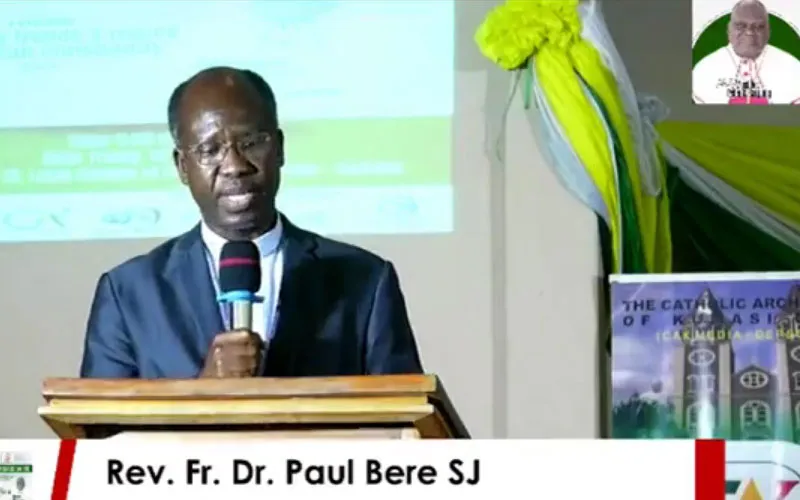Kumasi, 04 October, 2021 / 9:30 pm (ACI Africa).
Catholics in Africa and beyond need to share the richness of African theology for a better understanding of this type of Christian theology, an African award-winning Priest has said.
Speaking at the Sarpong Theological Lecture (STL) organized by the Arrupe Jesuit Institute (AJI), a Ghana-based social justice centre of the Jesuit North-West Africa Province, Fr. Paul Béré said, “Africa needs scholars who understand Christian theology and African culture well enough to be able to give us a completely African theology.”
“I believe that because we are Catholics, we should be ready to share within the Catholic community and beyond the richness of our theology,” Fr. Béré, the recipient of the 2019 Ratzinger Prize said during the Friday, October 1 virtual event livestreamed from St. Louis College of Education in Ghana’s Kumasi Archdiocese.
If the richness of African theology is not shared among Catholics in Africa, the Burkinabe Jesuit Priest cautioned, “something will be lacking in what we call the Catholic teaching.”
“So yes, our theology should join the other voices because Catholicity is a Symphony,” the first ever African to win the Ratzinger Prize, which rewards the work of theologians and specialists from related disciplines, further said.








